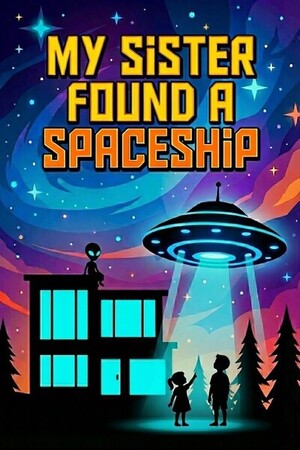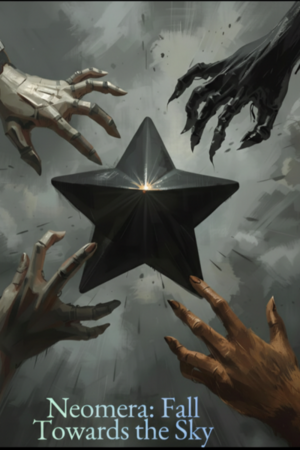Chapter 6:
Visitin' a friend...
Lu's Boys and the Man From Earth
Chapter Eleven: A Visit to Gus’s Ranch
Weeks rolled by, and the rhythm of farm life took root. With the harvest done and the cider fermentin’, most of the fields sat quiet. The corn still stood like soldiers in formation, but the rest was fallow—resting, just like we oughta be. I woke that day with a full belly, rested legs, and an itch to do somethin’ different.
Lu handed me coffee without a word, then raised an eyebrow. “You’ve been poutin’ at the corn for two days.”
“I ain’t poutin’. I’m contemplatin’.”
“Uh-huh.”
She didn’t press me, bless her, but by lunchtime I knew I needed a change of scenery. I hollered to the boys, told ‘em to pack up for a field trip.
“Where we goin’, Pa?” Uno asked, still wiping egg off his chin.
“Gus’s ranch.”
They let out a cheer that shook the roof.
Lu met me at the door, arms crossed. “He ready for us droppin’ in?”
“He’s always sayin’ I oughta come by. Guess today’s the day.”
We loaded up the mule with extra fuel, some pies Lu insisted on bringin’, and Dos's fiddle—‘cause why not. The ride was smooth, the dirt roads packed down hard after weeks of use. The sun, as always, hung overhead like it never learned to move on.
About an hour in, we passed a sign made of welded scrap metal: “East Hills Range – Trespassers Will Be Fed to the Goats.”
“That’s Gus alright,” I muttered.
The landscape changed as we crested a hill—rows upon rows of corn, taller than ours, thicker too. Far off, we saw solar trackers pivotin’ toward the light. In the distance stood a proper ranch house, big porch and all.
Before I could park, the door burst open and out ran a dozen figures—catfolk, all shapes and sizes, some familiar.
“Lu!” one of ‘em screamed. “Lu! That you?!”
Lu’s eyes lit up like dawn on a pond. “Ma?!” she hollered, nearly tumblin’ off the mule.
They rushed each other and clung like moss to bark. Her mother was shorter, silver tabby, and wore an apron stained with what smelled like chili. The rest swarmed us—cousins, uncles, siblings. The boys disappeared into the crowd, lifted up, tousled, and chattered over.
“Ron, this is my family,” Lu said breathlessly.
“I gathered.”
“Welcome, welcome!” her mother cried, dragging me into the house. “You must be the human. Gus says you got manners and know your barley from your beans. Come sit. Eat. Tell me if my daughter’s been treatin’ you right.”
Gus came struttin’ around the corner, already chewin’ on a toothpick. “Told ya they’d raise a fuss.”
“You weren’t kiddin’.”
The house was warm, cluttered in a friendly way. Quilts on every couch, boots by every door. They gave us lemonade with mint leaves and a bowl of popcorn dusted in some spicy powder I couldn’t identify.
We spent the afternoon tourin’ the property. Gus’s corn stretched so far, you could lose a year just walkin’ it. He had automated bots every hundred yards, and a few irrigation drones buzzin’ overhead.
“My secret?” he said. “I treat my soil better than most folks treat their kin.”
“Does it work?”
He pointed to a row of ears bigger than my arm. “You tell me.”
Late afternoon—if you could call it that—we circled back to the house, where grills had appeared like magic. Meat sizzled, beans boiled in cast iron, and someone passed out mugs of warm cider.
Lu was swappin’ stories with her sisters, and the boys had already started a contest on who could stack the most pies on their heads.
“Don’t drop ‘em,” I warned.
“Too late!” shouted Quattro, running from Seis who had a splatter of berry filling down his shirt.
I leaned against the porch rail and watched my strange little crew melt into the bigger, stranger one. There was laughin’, singin’, someone strummin’ a banjo. Gus flopped into the chair beside me.
“You holdin’ up?”
“I think so. Didn’t expect all this.”
He nodded. “Same. First time they all visited, I had to go sit in the outhouse just for some peace.”
I chuckled. “They’re good people.”
“They are. And they’ll look out for you, same as me.”
The sky stayed bright, the day stretching like taffy. As bellies filled and fire pits crackled, someone passed out blankets and folks just sprawled on the grass. I felt a tug at my sleeve—Lu, her eyes shining.
“Thank you for bringin’ me.”
I squeezed her hand. “This was long overdue.”
We didn’t leave till well past when a normal sun would’ve set. But here, where time didn’t care much for clocks, it felt just right.
Chapter Twelve: Seeds and Suds
The morning started with a crispness in the air that hadn’t been there before. The kind that whispered, “It’s time.” Lu handed me a fresh cup of coffee as I sat on the porch, eyeing the fields. We’d had our rest—now came the work of gettin’ the land to produce.
“We’ll plant today,” I said, mostly to myself, but Lu nodded all the same.
Out in the barn, I pulled out the seed sacks—barley, for sure. That’d feed the still and maybe leave us some to sell down the line. I also had a few bags of odd crops we’d picked up from Gus’ folks—striped squash, purple carrots, and a legume they just called “snap beans” that apparently fetched good coin.
Cinco and Tres loaded the planter, bouncing ideas off each other like popcorn in a kettle. I gave ‘em rows to work—barley on the east lot, squash and beans on the west slope where the soil ran a touch richer. Quattro and Seis joined them with rakes and hoes, smoothing seed beds and keeping the rows straight.
Over by the house, Lu had her apron tied and her sleeves rolled. She’d commandeered the smaller family plot for kitchen herbs and vegetables. With her were Six and Four—now known as Seis and Cuatro, though sometimes I still slipped up. They worked the soil by hand, placing onions, lettuce, and a patch of radishes I’d been hankering for.
“You two don’t eat all them berries before they grow, now,” I warned with a grin.
“We won’t!” Cuatro shouted. “Probably.”
The real fun was in the stillery. Uno and Dos were elbow-deep in barley malt and honey, stirring the thick, warm mix that would become our first pilsner batch. I kept an eye on the temperature while they argued about whether the smell reminded them of cereal or burnt toast.
“It’s got a sweet kick to it,” Dos said, wafting the steam toward his nose.
“Like soggy pancakes,” Uno added.
“Well, if it drinks smooth, I don’t care what it smells like,” I muttered.
They poured the slurry into the fermentation tank, sealed it up, and scribbled the date on the chalkboard beside the vats. We’d give it a week to bubble, then test a growler. If it passed muster, it’d be on its way to the saloon in barrels.
Back outside, I checked in on the field crew. Sweat was pourin’, dirt flew with every step, and the sun was doing its best to bake us into jerky. But spirits were high. Gus had lent us a second seeder, and with both machines humming, we made better time than expected.
At noon, Lu rang the old bell out front, and the boys came in from the field like bees to a hive. Lunch was cold chicken, pickled eggs, and bread with butter—basic, but hearty. We sat on the grass and ate under the permanent twilight, our faces flushed and hands crusted with honest work.
“I think this batch’ll turn out real nice,” Uno said, wiping his hands on his shirt.
“And them purple carrots’ll fetch double,” Cuatro added.
I leaned back against a fence post, chewing slow. “It ain’t just what we grow. It’s how we grow it—together.”
Lu gave me a knowing look and passed me the last pickle.
The afternoon was quieter. The boys returned to their tasks without complaint. Lu and her helpers mulched the garden, while the field crew cleaned the planters and started prepping the irrigation lines. I caught a moment to inspect the hops climbing the fence—still early, but they were lookin’ lively.
As the “sun” hung heavy overhead, I stood by the gate, hands on my hips, and took it all in. This was a farm now. Not just a patch of Earth tossed into the stars—but a real, breathing, producing place. A little wild, a little weird, but it was mine.
And it was good.




Please sign in to leave a comment.